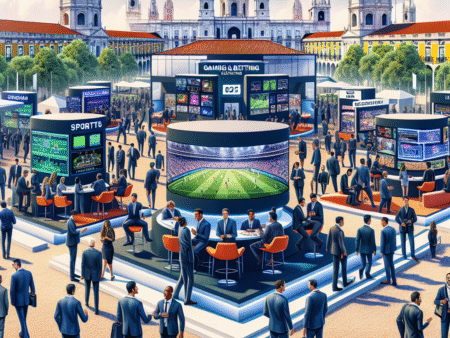Gambling In The Metaverse: Borderless Innovation Or Regulatory Loophole? – Global 2025
The metaverse is rapidly evolving as a virtual space where digital interactions and transactions are redefining traditional boundaries. This expansive digital universe is not only reshaping social interactions but also revolutionizing industries, with gambling being one of the most impacted. As we approach 2025, the question arises: Is gambling in the metaverse a borderless innovation or a regulatory loophole?
Table of Contents
- Introduction to the Metaverse
- The Rise of Metaverse Gambling
- Technological Innovations in Metaverse Gambling
- Regulatory Challenges and Opportunities
- Economic Impact and Potential
- Conclusion
- Related Articles
- FAQ
Introduction to the Metaverse
The metaverse is a collective virtual shared space, created by the convergence of virtually enhanced physical reality and physically persistent virtual space. It is a space where augmented reality (AR) and virtual reality (VR) technologies merge to create an immersive digital world. This new frontier is becoming increasingly accessible, driven by advancements in technology and a growing digital economy.
The metaverse is not just a singular entity but a network of 3D virtual worlds focused on social connections. Major tech companies, including Meta (formerly Facebook), are investing heavily in its development, betting on its potential to transform how we interact online.
The Rise of Metaverse Gambling
As the metaverse grows, so does its impact on the gambling industry. Virtual casinos are popping up within these digital environments, offering an array of games from poker to slot machines. These virtual casinos provide a unique blend of entertainment and social interaction that is hard to replicate in the physical world.
Gambling in the metaverse offers a borderless experience, free from the geographical constraints of traditional casinos. Players can gamble with cryptocurrencies, making transactions swift and often anonymous. This has opened up new avenues for both players and operators, but it also raises significant questions about regulation and oversight.
Technological Innovations in Metaverse Gambling
Technological innovations are at the heart of metaverse gambling. Advanced VR and AR technologies provide players with immersive experiences that mimic real-world casinos. Players can walk through virtual casino floors, interact with other avatars, and play games in a highly realistic environment.
Blockchain technology is another critical innovation, ensuring secure and transparent transactions. This technology underpins many metaverse gambling platforms, allowing for the use of cryptocurrencies and smart contracts. The decentralized nature of blockchain offers both opportunities and challenges, particularly in terms of regulation and player protection.
For more in-depth discussions on the latest trends in metaverse gambling, join the conversation in our Casino Talkroom.
Regulatory Challenges and Opportunities
The regulatory landscape for metaverse gambling is complex and evolving. Traditional gambling regulations are often based on geographical boundaries and jurisdictional laws, which do not easily translate to the borderless nature of the metaverse.
Regulators face the challenge of adapting laws to a digital environment where players and operators may be located in different parts of the world. This creates potential loopholes that can be exploited, such as the use of cryptocurrencies to bypass financial regulations.
However, the metaverse also presents opportunities for regulatory innovation. Implementing digital identity verification and leveraging blockchain technology can enhance player protection and ensure compliance with legal standards. For a comprehensive look at global regulatory trends, external sources such as MoneyWeek offer valuable insights.
Economic Impact and Potential
The economic implications of metaverse gambling are significant. The industry is poised for substantial growth, driven by the increasing popularity of virtual worlds and digital currencies. This growth presents opportunities for new business models and revenue streams.
Operators can benefit from lower overhead costs compared to traditional casinos, as there is no need for physical infrastructure. Additionally, the global reach of the metaverse allows operators to tap into new markets and attract a diverse player base.
However, this growth also comes with risks, particularly concerning market volatility and regulatory uncertainty. Stakeholders must navigate these challenges to fully capitalize on the economic potential of metaverse gambling.
For those interested in exploring the latest developments in online gambling, check out our section on sports betting.
Conclusion
Gambling in the metaverse represents a new frontier for the industry, characterized by innovation and challenges. As we move towards 2025, the debate over whether it is a borderless innovation or a regulatory loophole will continue. Stakeholders must work collaboratively to develop frameworks that balance innovation with regulation, ensuring a safe and thriving environment for players and operators alike.
Related Articles
FAQ
What is the metaverse?
The metaverse is a collective virtual shared space created by the convergence of virtually enhanced physical reality and physically persistent virtual space.
How is gambling in the metaverse different from traditional online gambling?
Metaverse gambling offers a more immersive experience through VR and AR technologies, and often involves transactions using cryptocurrencies.
What are the regulatory challenges of metaverse gambling?
Regulatory challenges include adapting existing laws to the borderless nature of the metaverse and ensuring compliance in a decentralized environment.


